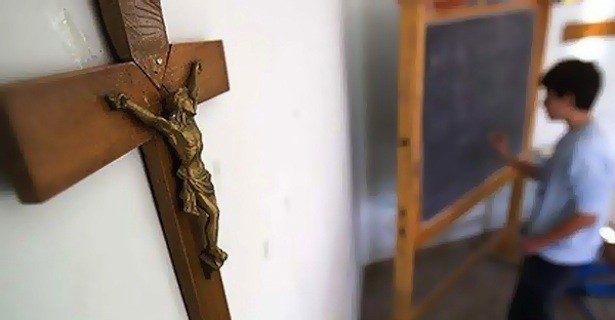Fr William Dailey CSC and Jonathan Tiernan
The parable of the talents, wherein the opportunity to take risks and invest in the gifts we have received is contrasted with the fearful failure to bury the treasure and hope for the best, speaks powerfully to the Church at all times, but perhaps particularly when we consider the case of Catholic schools here in Ireland. Church-sponsored schools have been the backbone of Irish education since at least the turn of the last century.
Much of that history gives the nation justification for great pride – our schools have produced scholars and saints, raising up poets and playwrights whose works have achieved global renown and, in the present day, preparing Irish youth for rigorous training in the sciences that has helped to transform the Irish economy.
Controversy
Yet recent decades have also produced great controversy surrounding Catholic schools, stemming, among other things, from their entanglement in the abuse crisis as well as from consideration of the rapidly shifting balance between the religiously devout and those who no longer identify with any religion whatsoever.
The Government is rightly challenged to find a way forward that responds to all of its citizens, irrespective of their religious beliefs, as well as to meet its general obligation to ensure that, whatever their ethos, Irish schools can meet the ever-shifting needs of the modern university and the modern economy in making sure our young are prepared for the future that awaits them. Many of the issues will be familiar: the call for devolution of schools from Church patronage, arguments over curriculum and the pervasiveness of ethos, the controversy over Baptism requirements for admission to Catholic schools that are over-subscribed.
The questions that the Government must face are not of course the Government’s alone: the Church must read the signs of the times in the light of the Gospel and, in the Spirit, discern its own path forward. If the Son of Man had nowhere to lay his head, we should not be surprised to find that rest is not the lot of those who would follow him.
But it is good to ponder both what Catholic schools have done and are doing well just as readily as we ponder what must change if we are truly to respond to the parable of the talents – taking account of the blessings of this great patrimony and assessing the way forward that can lead to greater flourishing. Ignoring the questions, waiting for the Government alone to lead, or simply trying to resist change at every stage — these are the strategy of that servant who buried his coin in fear of what might lie ahead.
In the spirit of that “good and faithful” servant who was given five talents, promptly went and traded them to make five more, and was invited “to join in his master’s happiness”, we must seek a bold way forward, trusting in the Lord’s providence.
In that Spirit, we at the University of Notre Dame’s Alliance for Catholic Education and the Notre-Dame Newman Centre for Faith & Reason at University Church will be hosting a forward-thinking and positive panel discussion on the future of Catholic schools in Ireland. Moderated by Deacon Dermot McCarthy, the panel features John Boyle (President of the Irish National Teachers’ Organisation), Dr Marie Griffin (CEO of second level schools trust CEIST), Dr Anne Looney (Executive Dean of DCU’s Institute of Education), and Seamus Mulconry (General Secretary of the Catholic Primary Schools Management Association). The voices of these leaders will help us to heed the Lord’s frequent admonition to be not afraid but instead to cast out into the deep. We hope you can join us for a lively and essential discussion.
Fr William Dailey CSC is Director of the Notre Dame – Newman Centre for Faith and Reason. Jonathan Tiernan is Director of the Alliance for Catholic Education Ireland, University of Notre Dame.
‘Looking Forward: A public conversation on the future of Catholic Schools in Ireland’ will take place on Monday, September 18 at 7pm in the Notre Dame – Newman Centre, University Church, St Stephen’s Green, Dublin 2.



